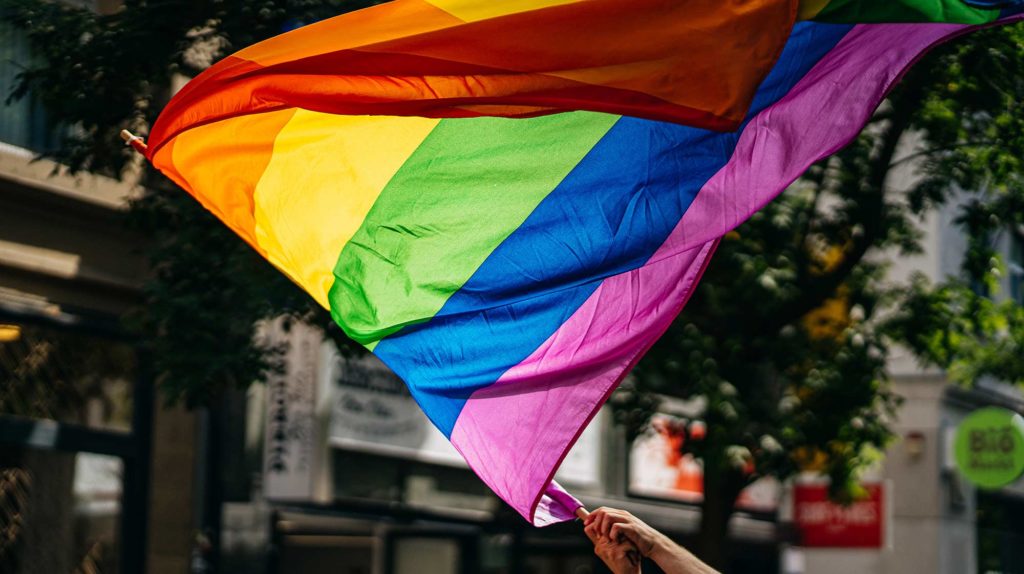
We have described the Passionate Pantheon as “queer erotica.” In fact, if you look at the subtitle of this blog, it says “Thinky geeky kinky queer erotica” right there in the subhead.
But are we really? Does the “queer” label actually fit the Passionate Pantheon? And what do we mean by ‘queer,’ anyway?
For some people, ‘queer’ means ‘LGBT’, which means ‘gay’. So why not just say gay? Well for one thing, it doesn’t apply. It is totally and utterly inadequate. In the Passionate Pantheon novels, you’ll see relationships between people with the same general bodies, with the same basic sorts of genitals, but they’re not really ‘gay’ relationships because to the residents of the City, taking on an identity based on the genitals of the folks you have sex with (or refrain from sex with, as the case may be) would seem…rather weird, honestly.
When we call this series ‘thinky geeky queer erotica,’ we’re using the word ‘queer’ to cover a lot of territory. The characters you’ll meet don’t have sexual or gender or orientation identities the way we think of them in this world. You’ll see a lot of sex (and we mean a lot of sex) involving people with the same genitalia, or unusual genitalia, in bodies that may or may not match what they’re born with, in a wide range of contexts, and in the City, this is all completely normal. It’s not even just normal, it’s the most common scenario — everyone explores at some point in their lives, pretty much (well…okay, almost everyone! Even in the Passionate Pantheon, you get outliers.)
So there aren’t a lot of words that fit. ‘Queer’ comes closest, with its deliberate inclusivity, but is it a good match?
If you read the stories, you’ll find what many people would call queer sex. Women having sex with women! People with bodies that aren’t necessarily ‘male’ or ‘female’! Sexual partners coming together in ways that are, with the current state of biomedical technology, not even physically possible (and yes, we know that for a certain type of conservative person, they can’t even quite wrap their heads around how sex between two women works — if no one sticks a biopenis in a vagina, does it even count as sex??)!
You’ll consistently see relationships that are non-cis/het/mono/allo-normative (yes, I know, that’s a mouthful and a half, but trust me, it’s much more succinct than writing it out in full!). But is that enough to consider these novels “queer” fiction? What does “queer” fiction mean, in our modern genre categorising—is it just “fiction involving characters who aren’t cis/heteronormative”? Is it “fiction about the experience of being non-normative in a normative world”? Maybe it’s “fiction from queer writers, no matter what they write”? (And what does that mean for fiction co-written by two authors, one of whom is super super queer and one of whom is entirely the opposite in multiple ways? Do we balance each other out and form one ‘normal’ queer writer with leftover bits?)
And the more we think about it, the more we think maybe the label of “queer fiction” isn’t a good descriptor for the Passionate Pantheon at all, because the Passionate Pantheon novels are missing an element often found in other entertainment described as “queer”—the understanding that the sex and relationships the characters engage in aren’t normalized in their society. They exist in a world that is, at best, built on the barely-buried bones of a society that did not accept them, and at worst within a society that still does not accept them. Fear was a part of the experience of being queer for such a long time, in so many cultures.
The society of the Passionate Pantheon is not heteronormative, not cisnormative, not mononormative—in a lot of ways, it’s the complete inversion of 21st century Western sexual mores. In fact, the idea of sexual orientation doesn’t even apply to the world of the Passionate Pantheon. None of the characters in the Passionate Pantheon novels talk about, think about, or even acknowledge, the experience of being queer, because in the society they live in, there’s no such thing. It’s not a concept that would even make sense to them. Not the way it does in the real world.
So if a work of fiction has characters who aren’t cisnormative or heteronormative, and engage in sexual and romantic relationships we would label ‘queer,’ but in their society they’re simply relationships rather than queer relationships…is it really queer fiction? Is the existence of these relationships enough, or is one of the defining elements of queer fiction the background setting of non-queer identities as the norm?
When you look at fanfic, a lot of what you’ll find does try to create societies that don’t center cishetmononormative relationships, which makes a lot of sense when you consider that fanfic writers want to create worlds that expand beyond what we see in the real world. But even there, many of those stories are based in a world that is recognisably akin to our own (with its history of queer-phobia that we’re still fighting and struggling against) by the nature of the type of story they’re writing. And in published fiction, it’s even less common to see writing that normalizes non-mainstream relationships.
One of our goals with the Passionate Pantheon novels is to create a playground for exploration. Science fiction at its best has always been about asking “what if?” questions. Good science fiction isn’t about spaceships or laser guns or space aliens, it’s about people. The spaceships and aliens let us ask questions about the nature of the human condition: if we change this, what happens? What if we upend these assumptions? What if the environment looks like that?
We want to apply that same kind of “what if?” to human interpersonal and sexual relationships. The Passionate Pantheon novels are science fiction, but they’re not about the AI gods or the Providers or the drones or the shield generators, they’re about people. What we really want to explore is, what if we create a society where all the expectations about sex, connection, identity, and gender were inverted? What if we imagine a society with a completely different set of assumptions about what sex looks like? What if we totally remove any sense of stigma or shame from sex, and there’s no concept that the bodies of your lovers are part of your identity?
The answer, we think, upends a lot of expectations about what sex looks like. When bodies can be changed freely at will, and there’s no social expectation that your body or the bodies of your lovers matter (at least, no more than your choice of clothing), you end up with a lot of what in the real world might be called ‘queer’ relationships. But if you’re imagining a society where these are the norm and there’s no expectation that it should be otherwise, does the label ‘queer’ still apply?
There are a couple ways we might look at the label ‘queer fiction.’ Are the relationships in the fiction ‘queer’ (in the sense of being transgressive, unusual, or not normalized) for the society the fiction is set in, or are they ‘queer’ in the context of the society the reader lives in? You can make a compelling argument either way. In the first sense, the Passionate Pantheon novels aren’t really ‘queer fiction,’ but in the second sense, they are.
We’re aware that ‘queer’ isn’t a perfect descriptor for these novels, but then, nothing else really fits either. It’s the most appropriate word we could find right now, in our Western society, in English. Language changes, so it might not be the best word in a year, in five years, in ten years. For now it’s the best way we could think of to give people a sense of what they’re getting into. If you have a better word, we’d love to know!
